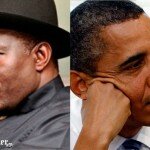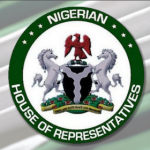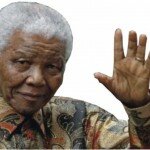Nigeria’s Economy Growing with People starving
Reports that Nigeria’s economy has outstripped that of South Africa and become the largest on the continent are good news only to President Goodluck Jonathan, his ministers, top politicians, members of the House, and other wealthy people who are living large in a poverty – stricken country. But to the ‘millions’ of jobless, hapless and helpless Nigerians, struggling to make a living on less than N200 a day – people whose hopes of enjoying their country are dashed daily in the face of missing money and stolen billions – that information means absolutely nothing. In fact, it is like pouring Iodine on a fresh, bleeding wound.
Notwithstanding, it is heartening to know that the level of economic activity in our country is higher than what it used to be and that we have a Gross Domestic Product (GDP) of $453,966.81 billion, up from $258,555.58 billion in 1990.
GDP is one of the primary indicators of a country’s economic performance. It is calculated by either adding up everyone’s income during a period or by adding the value of all final goods and services produced in a country during the year. Per capita GDP is sometimes used as an indicator of standard of living as well, with higher per capita GDP being interpreted as having a higher standard of living
According to the rebasing exercise, Nigeria’s economic growth is expanding more than that of South Africa. Yet Nigeria continues to trail South Africa in terms of GDP per capita, basic infrastructure, institutional capacity and financial market sophistication, despite its long and painful history of apartheid. This is something for our leaders to chew on. May be ashamed of.
The average Nigerian is poorer now than they were 25 years ago when the GDP was much lower. It hurts to know that we can be standing on so much economic progress, as the rebasing results show, and yet be sitting on so much poverty and deprivation.
While we do not question the validity of the results produced because we believe in the capability and professionalism of those who conducted the survey, we find it appalling that an economy so large can be producing “peanuts” in real terms – as per benefits to the people.
Another snag is that our economy is not diversified – everything is about oil. If there is a crash in oil prices, Nigeria will fall flat on its face. The rebasing figures showed a woeful decline in the share of the agricultural sector to the overall GDP, unlike in the 1990s.
Some economics and stakeholders have expressed surprises at the extent of the growing GDP – far higher than what was expected, the real shock is that Nigerians could still barely be surviving with an economy said to be growing at rocket speed. Nigerians are still among the poorest in the world, lacking basic necessities like potable water, electricity, sanitation and good roads. When you add those to Boko Haram, insecurity and unemployment, the current rebasing figures do not generate joy or any feeling of pride among a desperate and struggling people. The question is if our economy is doing so well, why are we doing so badly?
Dr Ngozi Okonjo-Iweala has said that the rebasing exercise would help the Federal Government make better policies that will grow the economy and create jobs. The minister said also that the result will not make the challenges of poverty and unemployment disappear overnight but would give better understanding of the structure and changes of the economy, which would help tackle poverty and unemployment.
We hope that the results will not only help in making better policies but also to plug the holes in the economy from where all our money and economic gains leak out after we have worked so hard. We hope that it will help our policy makers think seriously about diversifying the economy and paying more attention to agriculture, as no great nation in the world is unable to feed itself.
We hope that the planners will come up with policies that will raise our standard of living, reduce cost of living, raise minimum wage, improve security and curb crime by building industries and infrastructure that will drive productivity and employ millions of our jobless and joyless youths.
Only then will a rising GDP make sense. Only then too can Nigeria think of rubbing shoulders with South Africa.
Read also Related Posts
Comments
comments


 Margaret Thatcher’s Life and Times: A lesson for Nigerian Women
Margaret Thatcher’s Life and Times: A lesson for Nigerian Women
 Lawmakers Pass Anti-Gay Marriage Bill
Lawmakers Pass Anti-Gay Marriage Bill
 The hypocrisy of over adulating great men
The hypocrisy of over adulating great men
